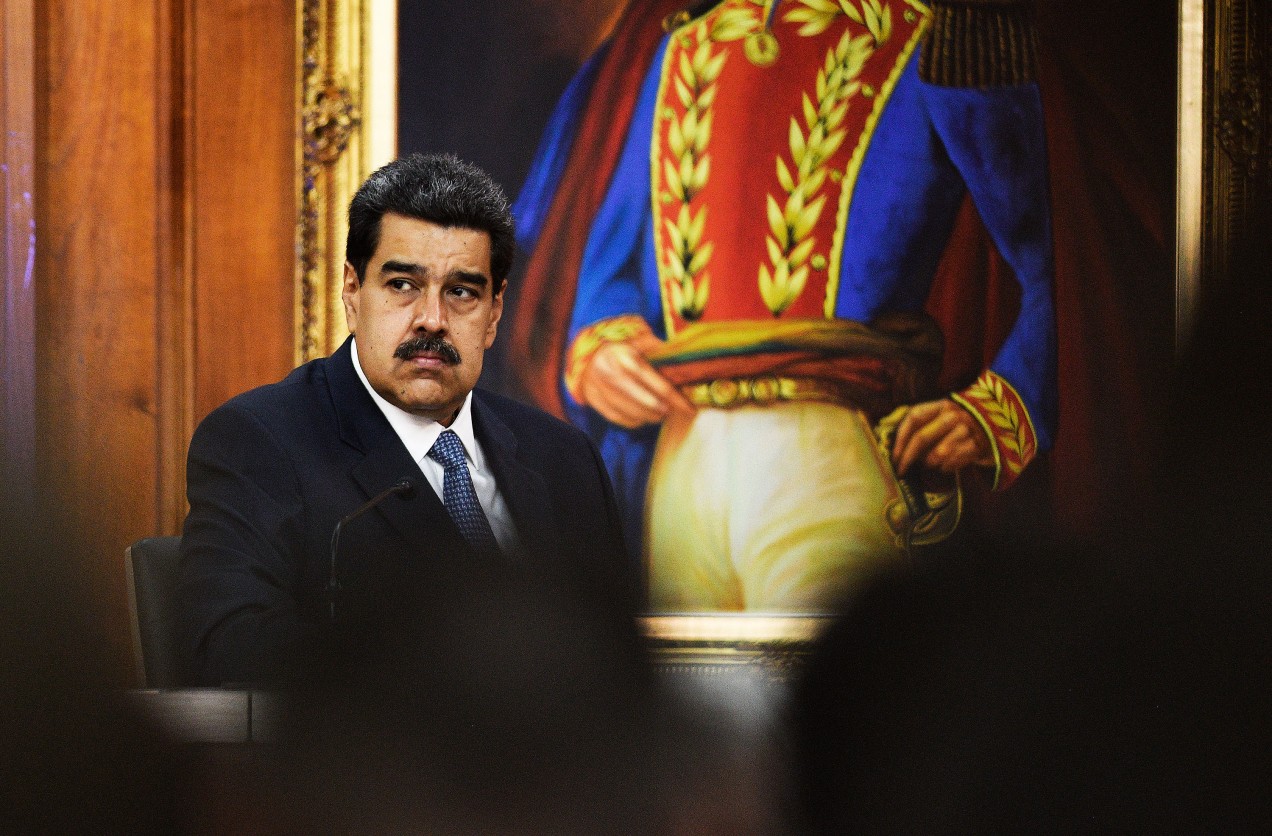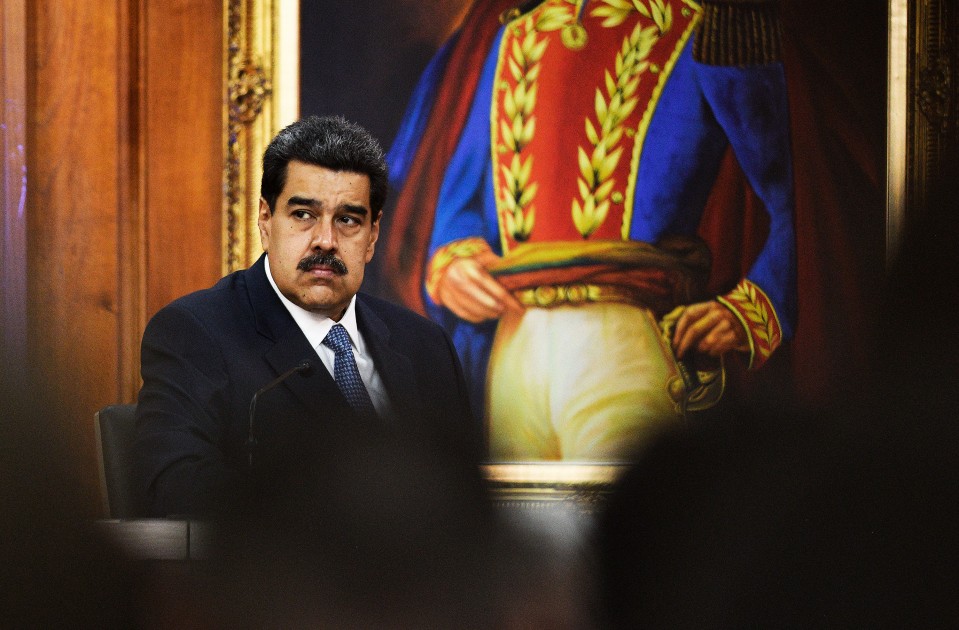

Blockchain / Cryptocurrency
“Crypto rogue” nations want to use blockchains to undermine the US dollar
Governments that want to circumvent US sanctions are turning to cryptocurrencies to avoid the traditional financial system.

America enjoys a unique position of power over the world’s financial system thanks to the supremacy of the US dollar. But several of the nation’s adversaries appear to think they’ve found a clever way around this decades-old setup: cryptocurrency.
One is already trying for the second time to put the theory to work. Last year, Venezuela’s government, under president Nicolás Maduro, launched a state-sponsored cryptocurrency, the petro. The scheme, a transparent attempt to evade US sanctions, hasn’t gotten off the ground and is widely seen as a failed scam. But now the administration has apparently turned to Bitcoin.
The Spanish publication ABC reported last week that Maduro’s administration has devised a new scheme to convert payment for airline taxes into Bitcoin and eventually dollars. The report cites airport sources who say that government officials use digital wallets to transfer the digital currency to exchanges in Hong Kong, Russia, China, and Hungary, where they convert them into dollars and then transfer the cash to Venezuelan government accounts in those countries. This gets them around US sanctions that block Venezuelan government accounts from the dollar-based system.
Venezuela’s leaders aren’t the only ones who seem convinced that blockchain technology could form the foundation of a new financial system that operates outside America’s reach. According to a new report, Iran, Russia, and China may soon join them in the league of “crypto rogues.”
The dollar is broadly accepted as the world’s reserve currency, meaning that foreign governments stockpile dollars and use them to participate in international trade. What this means is that much of global trade must run through US banks, and the US government can gain leverage during a conflict by cutting off adversaries’ access to dollars. For decades, there hasn’t been a good way to “conduct significant international commerce without moving through the pipes of the US-led global financial system,” write the authors of the new report from the Foundation for Defense of Democracies (FDD), a think tank in Washington. Now, they say, “new pipelines are being built” using blockchain technology.
In the near term, we’re likely to see small-scale sanctions-evasion operations (as in Venezuela) that use existing coins and cryptocurrency exchanges, says Yaya Fanusie, coauthor of the report. In fact, we’ve already seen it from North Korea: in March, a panel of experts reported to the United Nations that North Korean state-sponsored hackers stole more than half a billion dollars’ worth of cryptocurrency from online trading platforms between 2017 and 2018.
But Fanusie and his coauthor Trevor Logan argue that the four “crypto rogue” nations on which they focus—Russia, Iran, and China in addition to Venezuela—are actively exploring the long-term potential of blockchains to help them engage in trade without having to rely on US dollars. Today’s cryptocurrency infrastructure is too slow and inefficient to be a legitimate competitor to the US-led system. If these nations can find ways to overcome these technical roadblocks, however, this could change.
Critics have described the national-security-focused FDD as hawkish, particularly toward Iran. But the authors’ arguments are generally supported by government statements and news reports.
Russia
“Moscow is prioritizing blockchain technology advancement as a long-term economic and national security goal to lessen the impact of US sanctions and diversify its foreign currency reserves,” write Fanusie and Logan. In 2017, according to the New York Times, a Russian intelligence officer told attendees at an international blockchain meeting: “The internet belonged to America. The blockchain will belong to the Russians.” President Vladimir Putin has said that Russia should explore the use of blockchain technology, in part to “avoid various limitations in global finance trade.”
Several state-owned banks are running pilot tests of blockchain applications, as is Russia’s National Security Depository, the organization that settles the country’s securities trades. Russian central bank officials have also raised the prospect of using a blockchain and perhaps a digital currency to build a new payment system for use by members of the Eurasian Economic Union, a marketplace that brings together several states located in northern Asia and Eastern Europe. Last year, major Russian development banks joined counterparts from Brazil, India, China, and South Africa in an agreement to study distributed ledger technology.
Iran
Iran’s central bank is seriously considering creating its own state-backed cryptocurrency to help it deal with sanctions. In January, according to news reports, the head of Iran’s Trade Promotion Organization said that the nation was in negotiations with eight other countries over the use of a cryptocurrency to “circumvent US-led sanctions.” According to the FDD’s report, Iran’s central bank is “highly motivated” to develop an alternative, perhaps blockchain-based, to the international bank-to-bank payment system maintained by the Society for Worldwide Interbank Financial Telecommunication, or SWIFT. Late last year the service suspended a number of Iranian banks, likely because of US sanctions. Fanusie and Logan add that Russia has emerged as Iran’s “strong ally in the plan for blockchain resistance.”
China
China is unique among this group of countries because it is less threatened by US sanctions and because its leaders have revealed few specific details about its blockchain ambitions. Nonetheless, “displacing US influence in the global financial system is a national priority,” write Fanusie and Logan, who say that of all US adversaries China is best positioned to create a blockchain-based system that can compete with the dollar-based one. They argue that a digital renminbi would bolster trade with Chinese companies participating in its so-called Belt and Road Initiative, a global strategy to invest in trade infrastructure in countries that represent over 60% of the world’s population.
The People’s Bank of China (PBOC) has been studying digital currency since at least 2014, and in 2016 the bank’s governor implied it was inevitable that digital currency would eventually coexist with physical cash. In 2017, China’s government created a Digital Currency Research Institute, and announced that it would prioritize blockchain development as part of its five-year plan. The central bank and government are currently engaged in several blockchain projects. Recently, Wang Xin, director of the PBOC’s research bureau, expressed concern about the potential consequences of Facebook’s proposed digital currency for the global financial system, prompting speculation that China could launch its own digital currency in response.
So what?
What would it mean for the US and the rest of the world if another currency could strongly compete with or even replace the dollar as the reserve currency? There has been little analysis on the implications of this for the stability of the US-led financial system, says Fanusie. The US government tries to stop criminals from using cryptocurrency to launder money, but it hasn’t appeared to proactively consider this “broader, systemic question,” he says.
The report calls on the US Treasury to devise and run “threat scenarios” that play out what would happen if another nation-state successfully deployed an alternative financial system capable of undermining US influence. First, though, the government may need more in-house expertise, says Fanusie: “Your top economists and treasury folks—the people who really understand how money works—they need to also understand how blockchain technology works, and even understand this ecosystem a little bit, so that they could even come up with scenarios that would impact the US economy.”